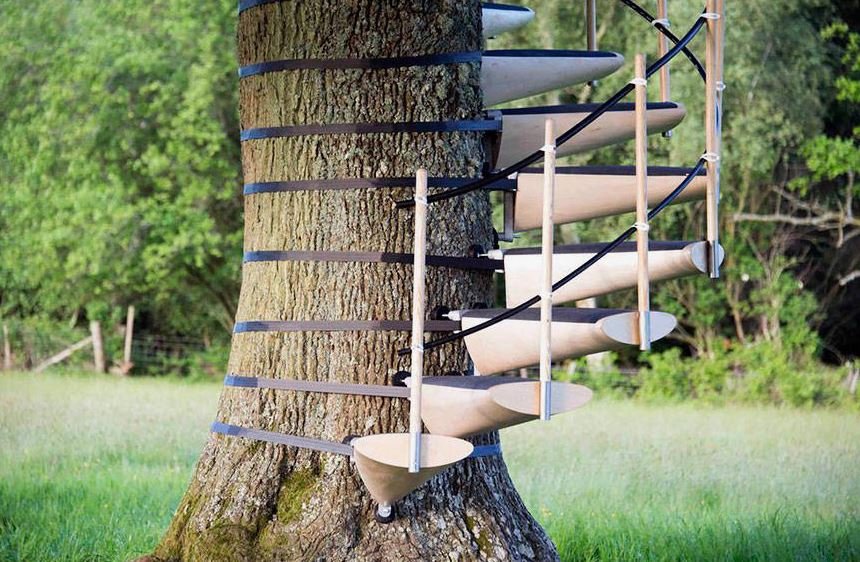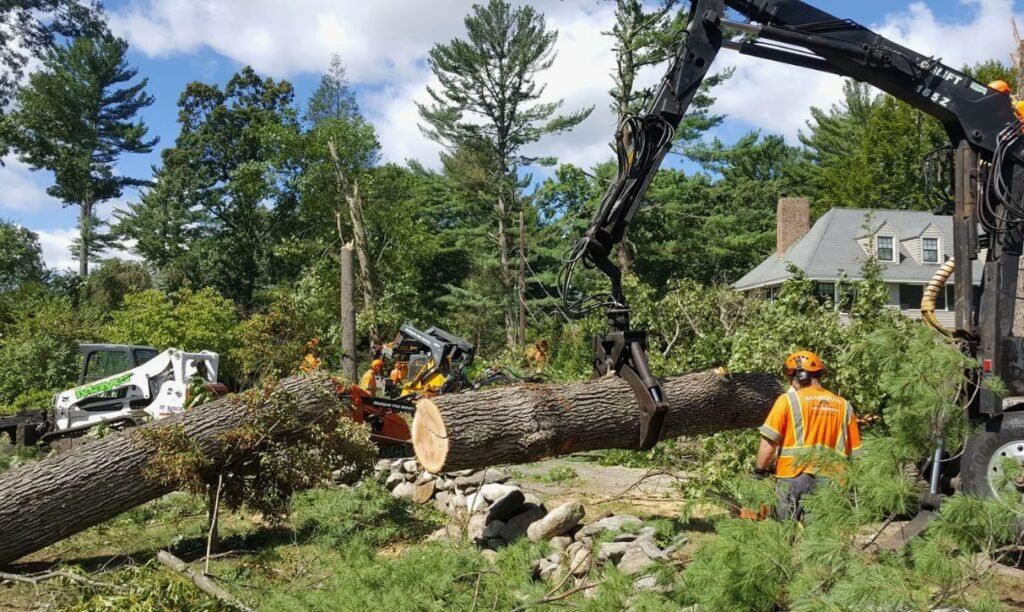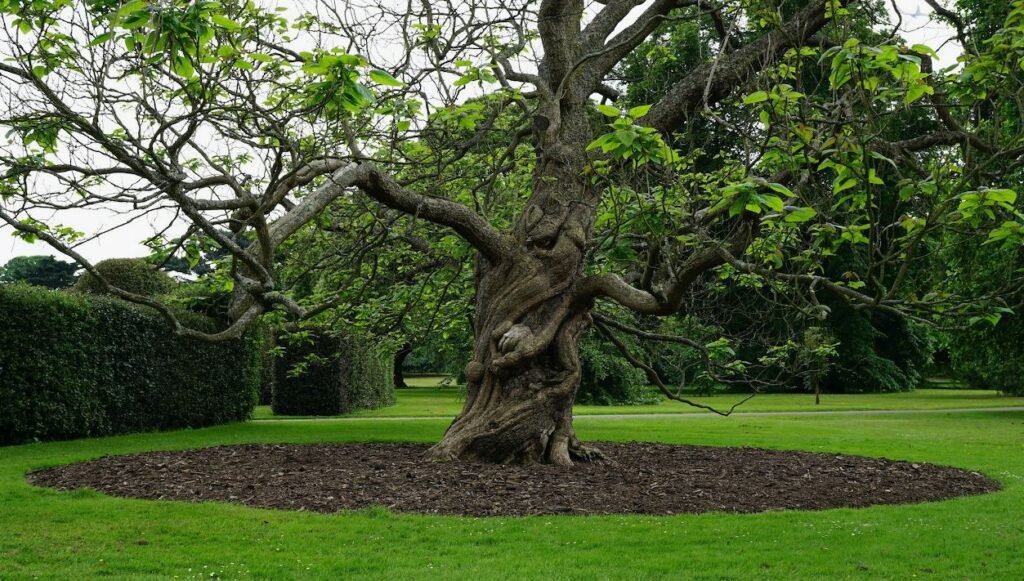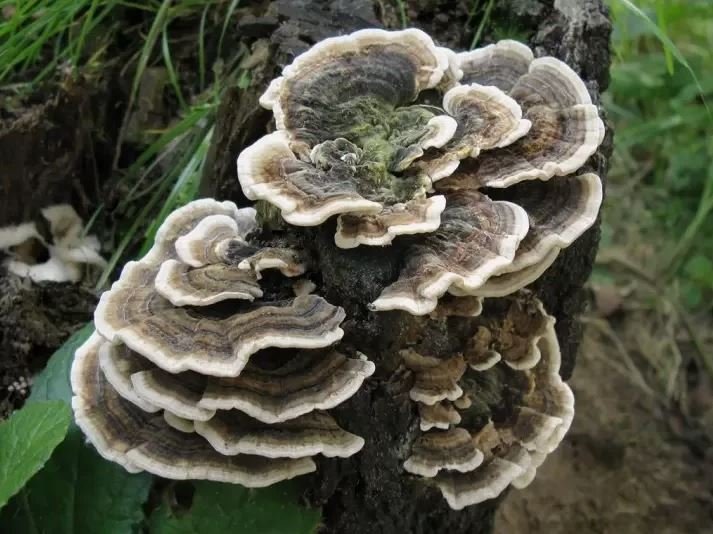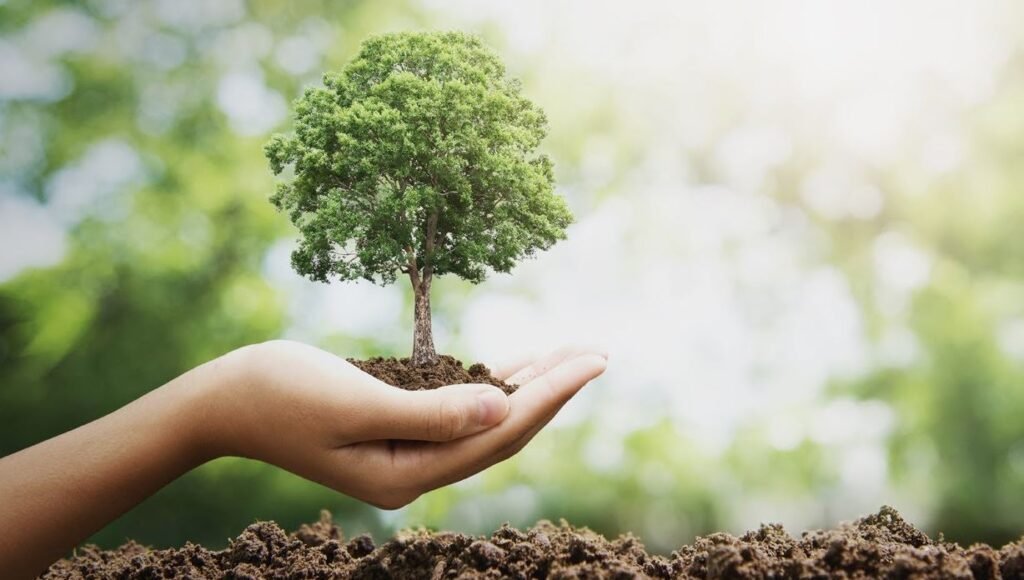Shade trees are more than just beautiful additions to your yard; they provide numerous environmental, health, and economic benefits. Whether you’re looking to cool your property, improve air quality, or enhance your landscape’s aesthetic appeal, shade trees offer a range of advantages that go beyond their visual charm. When planted and maintained properly, these trees can contribute to a sustainable and comfortable living environment.
In this blog, we’ll explore the many benefits of shade trees, from improving energy efficiency to supporting local ecosystems. We’ll also discuss when to call a professional arborist to help ensure your shade trees thrive and continue providing benefits for years to come.

1. Energy Efficiency and Cooling
One of the most significant benefits of shade trees is their ability to reduce energy consumption by naturally cooling your home and outdoor spaces. As trees grow and spread their canopies, they create shade that blocks direct sunlight from hitting your house, patios, and surrounding areas. This can significantly lower the temperature, reducing the need for air conditioning and cutting down on energy costs.
Lower Cooling Costs
Trees that are strategically placed around your home can reduce air conditioning needs by up to 30%. By blocking out the sun’s rays, shade trees help maintain a cooler indoor temperature, allowing you to rely less on energy-intensive cooling systems.
Natural Outdoor Cooling
In addition to keeping your home cooler, shade trees create cooler outdoor areas. A shaded yard is perfect for enjoying outdoor activities during hot summer months, as trees can lower the temperature by several degrees in the immediate vicinity.
When to Call a Professional: If you’re unsure about where to plant trees for optimal energy savings, a professional landscaper or arborist can help with strategic tree placement. They can evaluate sun patterns around your home and recommend the best species and locations for planting.
2. Improved Air Quality and Environmental Benefits
Shade trees play a critical role in improving air quality. As they grow, trees absorb carbon dioxide and release oxygen, helping to reduce greenhouse gases in the atmosphere. Additionally, trees filter pollutants from the air, making your immediate environment cleaner and healthier.
Carbon Sequestration
Shade trees capture and store carbon dioxide, which helps mitigate climate change. By planting more trees in your yard, you contribute to reducing the overall carbon footprint of your property. Mature trees are especially effective in absorbing carbon dioxide, which benefits the environment on a larger scale.
Reduction of Airborne Pollutants
Trees also act as natural air filters by trapping dust, pollen, and pollutants from the air. This can improve air quality in your neighborhood and help reduce respiratory issues for those with allergies or asthma.
When to Call a Professional: If you’re looking to enhance the environmental impact of your landscape, consulting with a professional can help you select the right species of shade trees that thrive in your area and provide maximum environmental benefits.
3. Increased Property Value and Curb Appeal
In addition to their environmental advantages, shade trees add significant aesthetic and financial value to your property. Well-maintained, mature trees are often seen as a desirable feature for potential homebuyers, contributing to a property’s curb appeal and overall market value.
Enhanced Aesthetics
A yard with large, healthy shade trees is visually appealing and provides a welcoming atmosphere. Whether you’re looking to create a tranquil garden space or add to the natural beauty of your property, shade trees enhance the visual charm of any landscape.
Increased Home Value
Homes with mature trees often sell for higher prices compared to homes without trees. Studies show that well-landscaped properties, especially those with shade trees, can increase home value by up to 15%. The presence of trees can also help reduce noise pollution, creating a quieter and more serene environment.
When to Call a Professional: For homeowners looking to increase property value, it’s important to choose the right type of tree and maintain it properly. Hiring a professional arborist for pruning, shaping, and ongoing care ensures your trees stay healthy and attractive.
4. Erosion Control and Soil Protection
Another benefit of shade trees is their ability to prevent soil erosion. The roots of trees help anchor the soil, reducing the risk of erosion caused by wind or water. This is especially important in areas prone to heavy rainfall or where landscaping may be at risk from soil displacement.
Root Systems that Prevent Erosion
The extensive root systems of shade trees stabilize the soil, reducing the impact of rainfall and runoff. This is particularly helpful for properties on slopes or near water bodies, where erosion can lead to structural damage or landscape degradation.
Soil Enrichment
Falling leaves from shade trees enrich the soil with nutrients as they decompose. This natural process improves the health of the soil, supporting other plants and trees in your yard.
When to Call a Professional: If you’re dealing with erosion issues on your property, it’s best to consult a professional who can recommend the best shade tree species and planting methods to stabilize the soil and prevent further erosion.
5. Support for Local Wildlife and Ecosystems
Shade trees contribute to the health of local ecosystems by providing food and shelter for wildlife. Birds, insects, and small mammals often rely on trees for nesting, feeding, and protection. By planting shade trees, you’re not only enhancing your property but also supporting biodiversity in your area.

Habitat for Wildlife
Many species of birds and animals make their homes in shade trees. Birds build nests in the branches, while squirrels and other small mammals use the tree for shelter. Trees also provide a habitat for beneficial insects like bees and butterflies, which are crucial for pollination.
Food Source for Animals
Shade trees such as oak, maple, and fruit trees offer food sources in the form of seeds, nuts, or fruits. By planting these types of trees, you can help sustain local wildlife while adding beauty to your landscape.
When to Call a Professional: A professional arborist can help you select the best shade trees to support local wildlife. They can advise you on tree species that are most beneficial for the native animals and ecosystems in your area.
6. Health and Well-Being Benefits
The presence of shade trees has been shown to positively affect mental and physical health. Spending time outdoors among trees can reduce stress, improve mood, and provide opportunities for physical activity like gardening or walking.
Stress Reduction and Relaxation
Being surrounded by nature has been linked to lower levels of stress and anxiety. Shade trees offer a peaceful environment where you can relax, meditate, or simply enjoy the beauty of nature. Their calming presence makes outdoor spaces more enjoyable.
Opportunities for Outdoor Activities
Shade trees make outdoor spaces more comfortable during the warmer months by providing cool, shaded areas. This encourages more outdoor activities, whether it’s hosting a barbecue, playing with children, or simply sitting outside with a good book.
When to Call a Professional: To ensure your shade trees grow healthily and provide long-term benefits, it’s important to work with a professional arborist for proper tree care, including pruning, fertilizing, and disease management.
The Many Benefits of Shade Trees
Shade trees provide a wide range of benefits that go beyond their aesthetic appeal. From improving energy efficiency and air quality to supporting local wildlife and enhancing property value, shade trees are a valuable investment for any homeowner. Their ability to create a cooler, more comfortable environment makes them essential in both urban and suburban landscapes.
For the best results, consider working with a professional arborist who can guide you in selecting, planting, and maintaining your shade trees. By ensuring your trees are healthy and properly cared for, you’ll enjoy the many benefits they offer for years to come.
